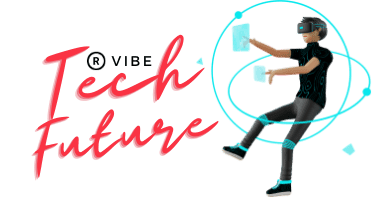Introduction: The New Era of Asbestos Litigation
Asbestos attorneys play a critical role in representing mesothelioma patients and their families. These cases are often complex, requiring years of evidence gathering, medical record analysis, and courtroom strategy.
In 2025, artificial intelligence (AI) is transforming how asbestos attorneys work—especially when it comes to predicting case outcomes. By leveraging legal tech tools, attorneys can now assess the strength of a claim, forecast potential settlements, and even prepare more effective arguments in court.
How AI Helps Predict Case Outcomes
Predicting legal outcomes has always been part experience, part intuition. But AI introduces a data-driven layer of certainty. Here’s how:
-
Case Law Analysis – AI platforms scan thousands of asbestos-related case precedents to identify how similar cases were judged.
-
Settlement Prediction Models – Algorithms weigh factors like exposure history, corporate negligence, and jurisdiction trends to suggest possible settlement ranges.
-
Medical Data Integration – AI analyzes medical reports, test results, and patient histories to link asbestos exposure with mesothelioma diagnoses, strengthening claims.
-
Jury Sentiment Forecasting – Some AI tools now use natural language processing to evaluate jury biases based on demographic and historical trial data.
Real-World Example
A California law firm recently adopted an AI-driven platform that reviewed over 50,000 asbestos-related cases. The software helped attorneys identify a settlement window for their client within 10% accuracy compared to the final award. This saved months of litigation and gave the patient’s family faster access to funds for medical care.
Benefits for Asbestos Attorneys and Clients
-
Faster Case Evaluation – What once took months can now be done in hours.
-
Higher Accuracy – AI minimizes human error by relying on verified data patterns.
-
Cost Savings – Streamlined research lowers overhead costs, which can benefit clients.
-
Improved Negotiation Power – Attorneys enter settlement discussions with data-backed projections.
Challenges and Ethical Concerns
Despite the promise, there are limitations:
-
Bias in Data – If past legal outcomes are biased, AI predictions may repeat those biases.
-
Privacy Risks – Handling sensitive medical and financial data requires strict cybersecurity measures.
-
Over-Reliance – AI should assist, not replace, legal judgment and human empathy.
Future of AI in Asbestos Litigation
Looking ahead, AI won’t just predict outcomes—it may eventually simulate courtroom scenarios, suggest optimal arguments, and personalize client strategies. For asbestos attorneys, this means sharper advocacy and better client results while still keeping the human touch at the center of legal practice.
FAQs
1. How accurate is AI in predicting asbestos case outcomes?
Most AI tools achieve 70–90% accuracy, depending on data quality and jurisdictional complexity.
2. Will AI replace asbestos attorneys?
No. AI is a support tool, not a replacement. It helps attorneys work smarter, but empathy, negotiation, and courtroom presence remain human-driven.
3. What legal tech tools are most common in asbestos litigation?
AI-powered legal research platforms, predictive settlement software, and medical evidence analyzers are leading tools in 2025.
4. Are AI-driven predictions admissible in court?
Not directly. However, attorneys use them as strategic insights to strengthen arguments and negotiations.
5. How does AI benefit mesothelioma patients?
Patients receive faster settlements, more accurate compensation estimates, and reduced litigation stress.
Conclusion
The rise of AI in legal tech is reshaping asbestos litigation. Asbestos attorneys now have powerful tools to predict outcomes, save time, and deliver better results for mesothelioma patients. While challenges remain, the balance of data and human expertise is creating a more efficient, compassionate, and just legal process.

